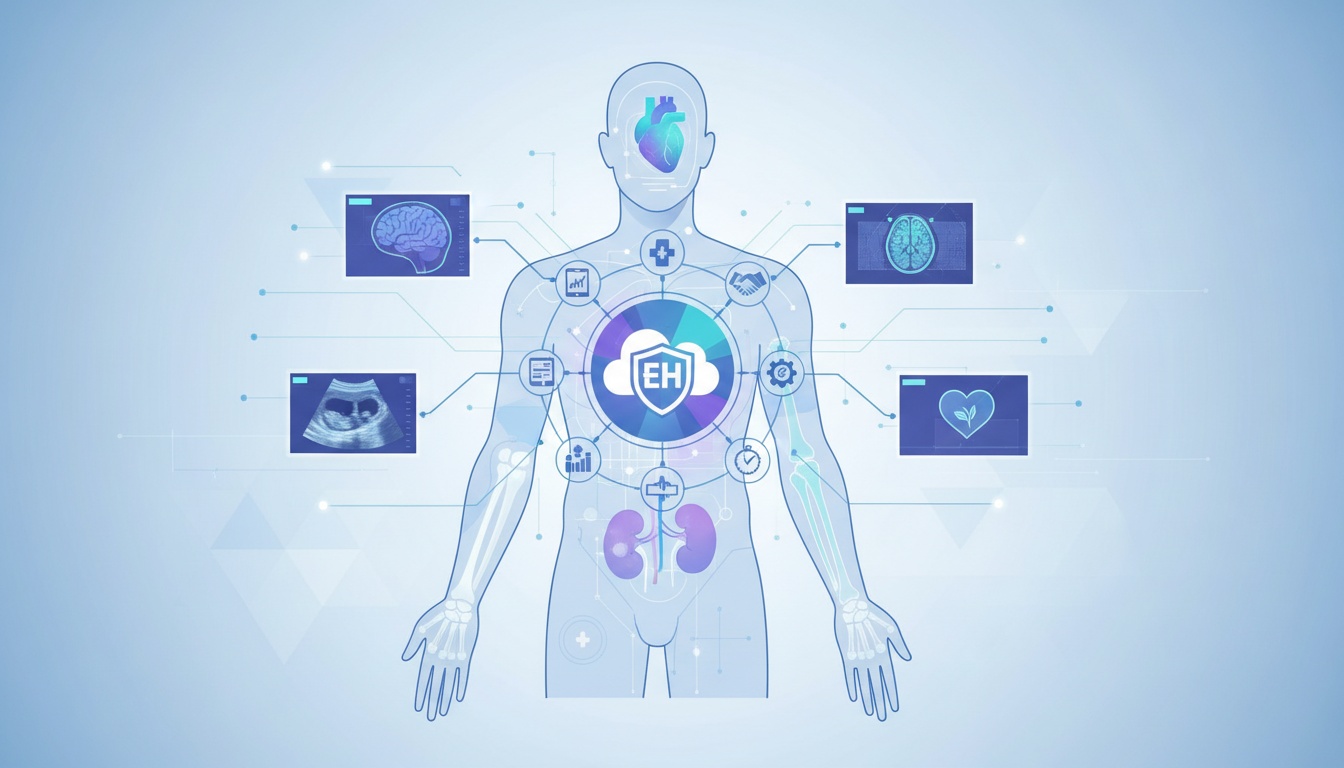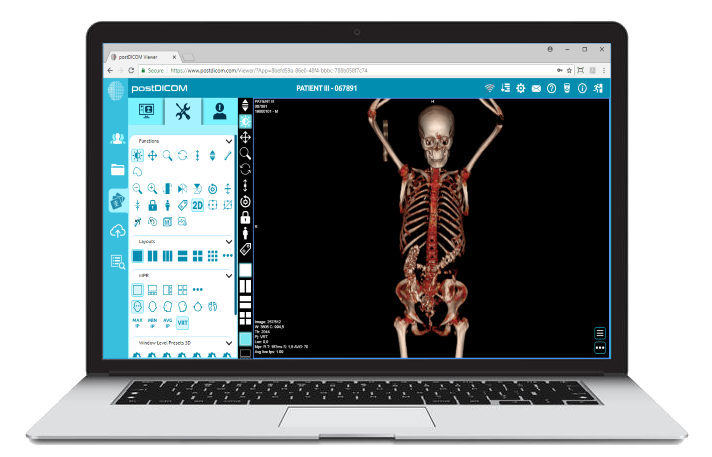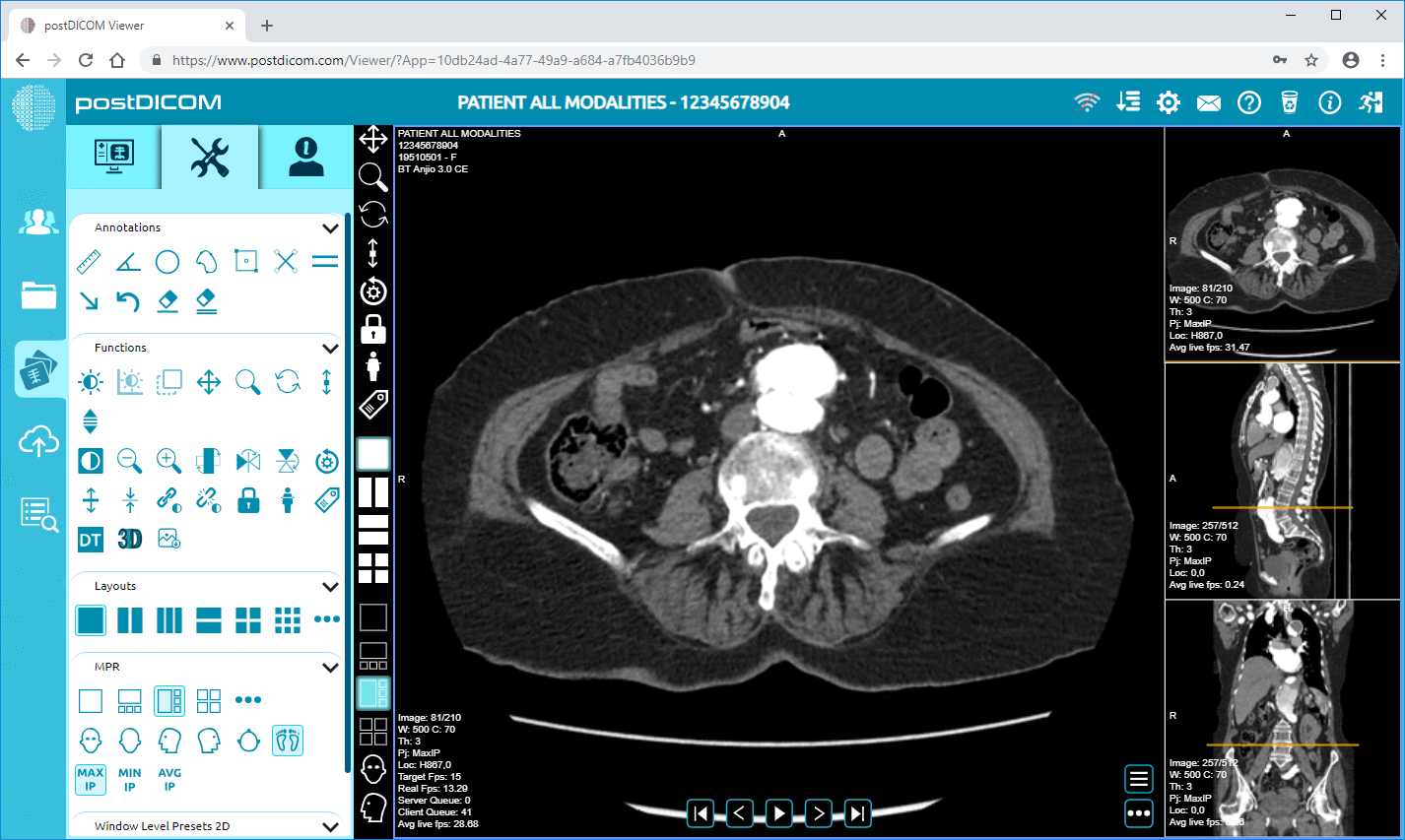
In the age of digital transformation, Electronic Health Records (EHR) have emerged as the cornerstone of modern healthcare. These systems are more than just digitized patient files; they are the heartbeat of health informatics, streamlining critical processes and significantly enhancing patient care.
Did you know that hospitals that adopt EHR systems have witnessed a 3.4% decrease in fatality rates? This shift revolutionizes the medical landscape, creating a more reliable, efficient, and patient-centered future.
This blog delves into how EHR systems revolutionize patient care quality.
The benefits are life-changing, from real-time data access to enhanced patient-provider communication, reduced medical errors, improved healthcare workflows, and the empowerment of preventative care.
Stay with us as we unpack these benefits one by one. Prepare to be amazed by how a single digital intervention can ripple into a healthcare revolution.
One key advantage of EHR systems is their ability to provide real-time data access. In the healthcare setting, every second counts. Real-time access to medical histories, test results, and previous treatments can differentiate between a rapid recovery and a prolonged hospital stay.
With immediate access to a patient's health information, healthcare providers can make quick, informed decisions about treatment protocols. The time saved on manually retrieving information can be channeled into direct patient care, effectively boosting healthcare outcomes.
A Journal of Patient Safety study found that EHR systems could reduce patient harm by 30%, highlighting the transformative power of real-time data.
Let's consider a real-world scenario. At least 15 hospitals in the Northeastern USA implementing an EHR system revolutionized care. Before EHR, accessing a patient's record could take up to two hours, sometimes longer if the patient had been treated in different departments. Now, that information is available at the click of a button. As a result, physicians can make quicker diagnoses, and patients experience faster care delivery.
This real-time accessibility doesn't just benefit physicians; it also empowers patients. With EHR systems, patients can access their health records anytime, anywhere, making them active participants in their healthcare journey.
In any healthcare setting, communication is the lifeline that ensures seamless patient care. EHR systems serve as a communication bridge, connecting patients and healthcare providers in an unprecedented way. These systems allow for a quick and efficient exchange of critical health information, enhancing patient-provider communication substantially.
Enhanced communication brings many benefits, including improved patient care quality. Doctors and other healthcare providers can instantly access and share medical records, lab results, and medication lists, making the patient care process more efficient and less prone to errors.
Furthermore, the patient's journey is simplified; they no longer have to remember complicated medical histories or carry bundles of paper records.
Moreover, with enhanced communication, doctors can offer more personalized care. By having access to a patient's complete medical history at their fingertips, they can better understand their health condition, which is particularly beneficial for chronic disease management.
The Centers for Disease Control and Prevention (CDC) report that EHRs can significantly improve the management of chronic diseases, leading to better health outcomes and enhanced quality of life for patients.
EHR systems are much more than just digital repositories of patient data. They are dynamic platforms that help reduce medical errors, a vital aspect of enhancing patient safety and ensuring quality healthcare.
The digitization of patient records eliminates the risk of misinterpretation due to illegible handwriting, one of the key contributors to medical errors.
The implementation of EHR systems plays a significant role in increasing patient safety.
Maintaining an accurate and up-to-date record of a patient’s medical history, medication allergies, and treatment plans, these systems help healthcare providers avoid potential mistakes that could adversely affect a patient’s health.
According to a study published in the Journal of Healthcare Information Management, hospitals that fully implement EHR systems have seen a 30% reduction in medication errors. This is a testament to the power of EHR in creating a safer healthcare environment.
Consider the case study of a new clinic. Before implementing EHR systems, the hospital grappled with occasional medication errors and mix-ups in patient records. With the introduction of EHR systems, medical staff could quickly access accurate patient records, ensuring correct medication was administered every time.
Within six months of EHR implementation, the hospital saw a 28% reduction in medication errors, reflecting the profound impact of EHR systems in enhancing patient safety.
Every healthcare journey from admission to discharge involves numerous processes and workflows. Adopting EHR systems can streamline these workflows, creating a more efficient and productive healthcare environment that directly translates to improved patient care quality.
EHR systems integrate different healthcare functions, such as
Scheduling
Documentation
Medication ordering, and
Billing into one platform
This interconnectedness ensures a smooth flow of information between departments, eliminating duplications and reducing the time spent on administrative tasks.
With EHRs, healthcare providers can access patient records, diagnose accurately, develop treatment plans, and predict potential health issues.
These streamlined workflows translate to less patient waiting time, faster treatment initiation, and improved healthcare outcomes.
Consider the transformation of DEF Hospital after adopting an EHR system. Before, managing patient appointments, tests, and procedures involved juggling multiple systems and led to a cluttered and inefficient work environment.
The introduction of EHR integrated all these functions, turning a convoluted process into a streamlined workflow.
Within the first year of implementation, DEF Hospital reported a 40% improvement in operational efficiency, freeing up significant time for medical staff to focus on direct patient care. This perfectly illustrates how EHR systems can revolutionize healthcare workflows and enhance patient care quality.
Preventative care is a critical component of healthcare, aimed at preventing illnesses or detecting them at an early stage. Here's where EHR systems play a pivotal role.
By providing comprehensive, real-time patient data, EHRs empower healthcare providers to manage patient health, strengthening preventative care initiatives proactively.
 - Created by PostDICOM.jpg)
With access to detailed patient history, vaccination records, and past screenings, doctors can easily track health trends, predict potential health issues, and make preventative care recommendations. This approach ensures timely intervention, which can significantly improve patient health outcomes.
According to the U.S. Centers for Disease Control and Prevention (CDC), implementing preventative care measures can help prevent or manage chronic diseases, which account for seven out of the top ten causes of death in the United States.
To illustrate the profound impact of EHRs on preventative care, let's look at the story of GHI Clinic. After implementing an EHR system, the clinic could send automated reminders for routine check-ups and screenings to patients. As a result, they saw an impressive increase in preventative care visits and a corresponding decrease in emergency visits.
By leveraging EHR systems, GHI Clinic was able to make preventative care a standard practice rather than an afterthought. This improved the overall patient health outcomes and significantly reduced healthcare costs by catching potential health issues before they become severe.
EHR systems are more than just digital record-keeping tools; they are transformative forces revolutionizing patient care quality.
By providing real-time data access, enhancing patient-provider communication, reducing medical errors, streamlining healthcare workflows, and empowering preventative care, EHRs pave the way for superior healthcare outcomes.
As healthcare providers, it's essential to leverage the potential of EHR systems to deliver patient-centered, efficient, and safe care. As we continue to embrace this digital transformation, the future of healthcare appears brighter, ensuring a healthier tomorrow for all.


|
Cloud PACS and Online DICOM ViewerUpload DICOM images and clinical documents to PostDICOM servers. Store, view, collaborate, and share your medical imaging files. |